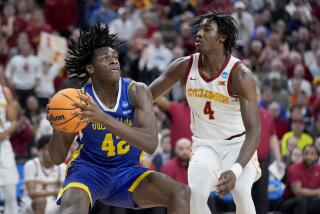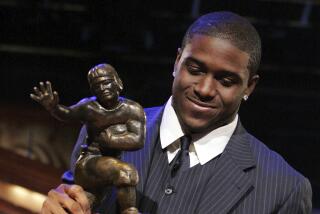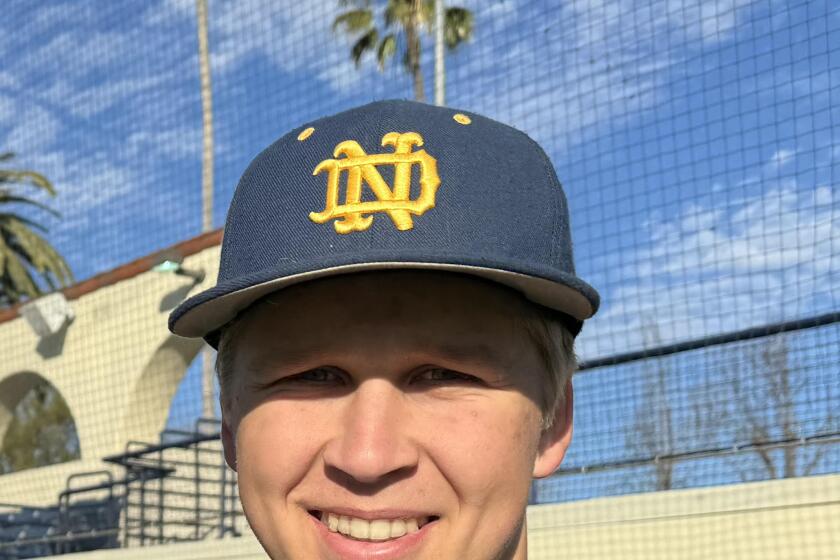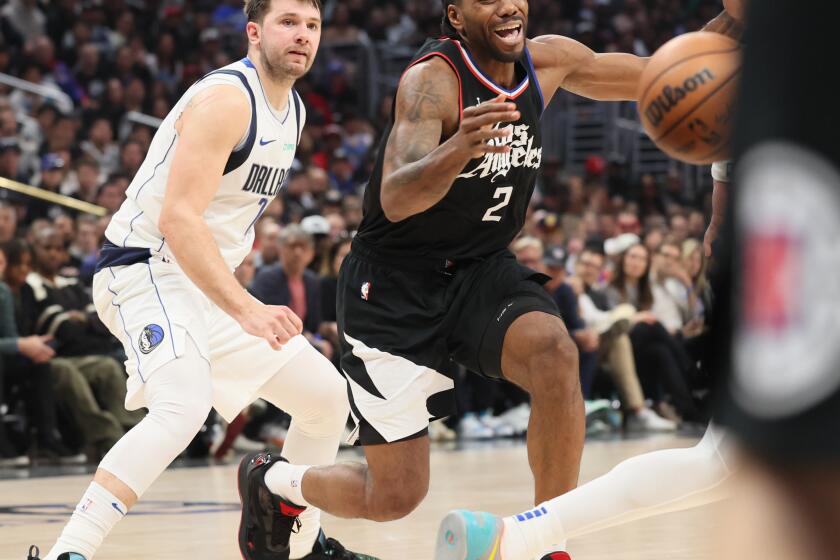Urban Meyer will be a hard act to follow
I am remembering Urban Meyer before he was Urban Meyer, sitting in the dark in his office one early Sunday morning three games into the 2004 season.
He was the coach at Utah, it was September, and Meyer seemed on the verge of something special. It was the reason I was sitting in his office.
Meyer was playing a snippet from Saturday’s game film, a 48-6 rout over Utah State. He was reviewing a punt formation in which he had overloaded one side of the line of scrimmage.
“Why are you doing that?” I said.
“Just messing with them,” he said.
Meyer was a serious coach, with a serious handshake, on a fast track to the top of his profession.
He was 3-0 at Utah when I met with him in 2004, on his way to a 12-0 season, on his way to being chased by Notre Dame, on his way to being captured by Florida.
He crammed more success into the next five years than a coach could ask for in a lifetime. He inherited a Florida squad that was 7-5 in 2004 and had it winning the national title in 2006. He won another championship last year, becoming the only coach to win two Bowl Championship Series titles.
Saturday’s news that Meyer, only 45, was resigning for health-related reasons was shocking, but less so if too much stress factored into the decision.
Meyer used to shake his head when he thought of Joe Paterno and Bobby Bowden coaching at their ages. That was never going to be Meyer. He was wound more like Dick Vermeil and Joe Gibbs, men who left coaching early in part because of how much the sport had consumed them.
No one knows yet the full story of why Meyer walked away, or whether he will one day walk back (Vermeil and Gibbs did).
A university source told ESPN on Saturday that Meyer has been to a hospital twice since Florida’s loss to Alabama in the Southeastern Conference title game because of non-life-threatening heart problems related to stress.
This month, Meyer revealed to Sports Illustrated that doctors had discovered a cyst on his brain in 1998 when he was an assistant coach at Notre Dame. Doctors told Meyer then they didn’t believe the cyst was life threatening but that stressful situations could cause headaches.
At some point, Meyer may have to tell us more. A Florida news release said he would be available at a news conference today on his arrival in New Orleans for the Sugar Bowl, where the Gators will prepare for their Jan. 1 matchup with Cincinnati. Meyer will coach Florida in its last game.
Meyer’s life has been encompassed by stress; it has become part and parcel of the modern coach’s life. College coaches are well-compensated for their time -- with Meyer being paid $4million per year -- but most of them earn their money.
Head coaches are more than coaches now. In the 24/7 Internet world, they are surrogate parents, constant worriers, counselors and disciplinarians. Before Florida’s most important game of the season, against Alabama, Meyer had to suspend star defensive lineman Carlos Dunlap after he was stopped for allegedly driving drunk.
Meyer was a hands-on coach. He was involved in every part of the program and a man who cried over losing senior Tim Tebow to the rest of his life.
Meyer was less like Bowden and Paterno, who learned as company executive officers how to delegate responsibilities. And maybe that’s why they’re still coaching.
“I have given my heart and soul to coaching college football and mentoring young men for the last 24-plus years and I have dedicated most of my waking moments in the last five years to the Gator football program,” Meyer said in a statement. “I have ignored my health for years, but recent developments have forced me to re-evaluate my priorities of faith and family.”
If Meyer never coaches again, it would be like Sandy Koufax being forced to leave baseball at the top of his game.
His .848 winning percentage is the best in Florida history. His five-year record in Gainesville was 56-10. He was 32-2 in Southeastern Conference play. He reached his 50th win in his 59th game. Meyer was 11-3 against top-10 teams and his teams have been ranked in 82 consecutive polls, including 16 weeks at No.1.
What happens next at Florida is a whopper of a question for after the shock wears off. The job is a crowned jewel and athletic directors at top programs should be nervous about receiving a call from Athletic Director Jeremy Foley asking permission to speak to their coaches.
Meyer, as Steve Spurrier had done in the 1990s, made Florida a super power.
Good-bye (for now) and good health to Meyer.
Good luck to the man trying to replace him.
twitter.com/DufresneLATimes
More to Read
Get our high school sports newsletter
Prep Rally is devoted to the SoCal high school sports experience, bringing you scores, stories and a behind-the-scenes look at what makes prep sports so popular.
You may occasionally receive promotional content from the Los Angeles Times.







